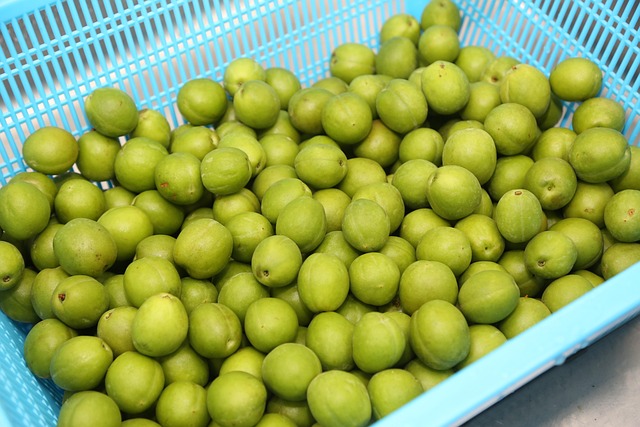Translation services for UK Product Specification Sheets are vital for global success. Accurate, culturally adapted translations prevent legal issues, supply chain disruptions, and build trust with international customers. Choose reputable providers with industry knowledge to ensure compliance, reduce costs, and maximize sales opportunities. Key steps include qualified translators, translation memory, data-driven tools, cultural adaptations, and quality control measures like GDPR/MDR compliance for precise, authoritative communication.
In today’s global marketplace, ensuring accurate translations for UK product specifications is paramount for businesses aiming to expand their reach. The precision and clarity of these descriptions directly impact customer satisfaction and brand perception. However, navigating the complexities of language and regulatory requirements can be a challenge. This article delves into the critical importance of high-quality translation services for UK product specification sheets, offering a comprehensive guide to help businesses ensure their products accurately reflect their intended markets. By exploring best practices and highlighting the expertise required, we empower companies to confidently expand their global footprint.
- Understanding the Importance of Accurate Translations
- Choosing Reputable Translation Services for UK Market
- Best Practices for Translating Product Specification Sheets
- Ensuring Quality Control in Technical Documentation Translation
Understanding the Importance of Accurate Translations

In the realm of international trade, accurate translations hold paramount importance, especially when it comes to product specifications. For UK businesses engaging in global markets, ensuring precise and reliable translations of product sheets is not merely an option but a strategic necessity. Translation services for UK Product Specification Sheets play a pivotal role in bridging communication gaps, facilitating seamless transactions, and fostering strong international partnerships.
The significance of accurate translations cannot be overstated. Inaccurate or poorly translated product specifications can lead to misunderstandings, misaligned expectations, and even legal issues. For instance, a misplaced translation error might describe a product’s features or safety standards incorrectly, potentially causing serious consequences in regulated markets. Moreover, inconsistent or ambiguous language can hinder efficient supply chain management and customer support, creating bottlenecks and negatively impacting business operations.
Therefore, businesses must invest in professional translation services to ensure their UK product specification sheets are not just words on paper but clear, concise, and culturally adapted communication tools. Expert translators with industry-specific knowledge and native-level language proficiency can deliver high-quality translations that capture the essence of complex product information. By aligning with international standards and best practices, these translations become reliable references for global stakeholders, ensuring compliance, fostering trust, and promoting successful cross-border collaborations.
Choosing Reputable Translation Services for UK Market

When seeking accurate translations for UK product specifications, choosing reputable translation services is paramount to ensure compliance with local regulations and maintain brand integrity. Translation services for UK product specification sheets should not be treated as a mere afterthought; it’s an investment that directly impacts your market entry strategy. Reputable providers offer more than just word-for-word translation—they delve into the nuances of the source text, ensuring equivalent meaning and cultural relevance in the target language.
For instance, consider a UK-based electronics manufacturer expanding to Europe. Their product specification sheets, initially drafted in English, require meticulous translation to accurately convey technical details in languages like German or French. A top-tier translation service would employ native-speaking translators with expertise in electrical engineering, ensuring precise terminology and adhering to industry standards specific to each target market. This level of specialized knowledge prevents miscommunication that could lead to costly product recalls or legal issues.
Data supports the importance of professional translation services. According to a study by the European Commission, errors in translated documentation can cost businesses up to 20% more in time and money compared to accurate translations. Moreover, using unproven or amateurish translation services may result in lost sales opportunities due to misrepresented product features. Therefore, companies should conduct thorough research when selecting a translation service provider, looking for credentials, experience, and a proven track record in translating UK product specification sheets.
In light of these considerations, actionable advice includes checking the translator’s qualifications (e.g., certified by professional bodies like ITI or IOLE), verifying their industry-specific knowledge, and requesting samples to assess quality. Additionally, leveraging client testimonials and case studies can provide insights into the provider’s ability to handle complex projects and meet tight deadlines. Ultimately, choosing a reputable translation service for UK product specification sheets is not just about language proficiency; it’s about ensuring your products are accurately represented in new markets, fostering trust with international customers, and setting the stage for successful global growth.
Best Practices for Translating Product Specification Sheets

When it comes to translating UK product specification sheets, precision is paramount. These documents, often technical and detailed, require a meticulous approach to ensure accurate communication across languages. One of the key challenges lies in capturing not just the literal meaning but also the technical nuances, ensuring the translated content aligns perfectly with the original intent. Translation services for UK Product Specification Sheets must employ best practices to deliver high-quality results.
Expert translators should start by thoroughly understanding the industry-specific terminology and jargon used in the source document. This involves consulting subject matter experts or industry glossaries to ensure a comprehensive grasp of the field. For instance, in the automotive sector, terms like “torque” and “horsepower” require precise translations that resonate with global audiences while maintaining technical accuracy. A robust translation memory, a database of previously translated terms, can significantly enhance consistency.
Data-driven approaches further refine the translation process. Using tools that analyze large volumes of text and identify patterns helps maintain terminological coherence across multiple sheets. Additionally, cultural considerations cannot be overlooked. Different regions have unique preferences and requirements when it comes to product presentations. For example, a UK specification sheet might use imperial measurements, while an international audience may prefer metric units, necessitating adaptable translation strategies to accommodate these variations. Regular quality assurance checks by native speakers ensure the final document is not only accurate but also fluent and readable.
Ensuring Quality Control in Technical Documentation Translation

Technical documentation translation is a critical aspect of ensuring product safety, compliance, and success in the UK market. For manufacturers and distributors, providing accurate and consistent translations for product specification sheets (PSS) is essential to maintaining quality control. Poorly translated PSSs can lead to misunderstandings, incorrect assembly, and even legal issues regarding product liability. Therefore, outsourcing translation services for UK product specification sheets becomes a strategic decision to safeguard against these risks.
The process of quality control in technical translation involves several stringent checks. It begins with selecting qualified translators who possess not only linguistic expertise but also a deep understanding of the specific industry and its terminologies. Translation memories (TMs) and glossaries are employed to maintain consistency throughout the document, ensuring that specialized terms are translated accurately across different projects. For instance, in the automotive sector, consistent translation of parts numbers, material specifications, and safety protocols is paramount. Automated tools, such as machine translation, can offer a preliminary check but must be fine-tuned by human experts to avoid introducing errors or losing critical nuances.
Additionally, proofreading and editing are vital stages in quality control. Experienced editors verify the logical flow, clarity, and grammatical correctness of the translated text. They also ensure that the PSS adheres to local regulations and language conventions, as UK markets have specific requirements for product labeling and documentation. For example, compliance with the General Data Protection Regulation (GDPR) for handling customer data or the Medical Devices Regulation (MDR) for medical device specifications is mandatory. Implementing a robust quality assurance (QA) process, including client feedback loops, enables continuous improvement in translation services, ultimately elevating the overall quality of technical documentation for UK product specification sheets.
In seeking accurate translations for UK product specifications, this article has underscored several key insights. First, understanding the paramount importance of precise translations ensures effective communication with British consumers. Second, choosing reputable translation services specializing in the UK market is essential to maintain quality and cultural relevance. Best practices include leveraging professional translators familiar with technical jargon and industry-specific terminology. Furthermore, ensuring robust quality control processes safeguards against errors and maintains document integrity. Practical next steps involve thoroughly vetting translation service providers, establishing clear project scopes, and implementing feedback mechanisms for continuous improvement. By adhering to these guidelines, businesses can effectively localize product specification sheets, enhancing customer satisfaction and market penetration in the UK.
Related Resources
1. British Standards Institution (BSI) – Technical Documentation (Industry Leader): [Offers comprehensive standards and guidelines for product specifications in the UK.] – https://www.bsi.org.uk/
2. Government Digital Service (GDS) – Translation Services (Government Portal): [Provides official translations services, ensuring accuracy for government communications.] – https://www.gov.uk/government/organisations/government-digital-service
3. University of Cambridge – Language & Linguistics Department (Academic Institution): [Conducts research and offers insights into translation methodologies and language studies.] – https://linguistics.cam.ac.uk/
4. Eurotrans – Translation Services (Industry Specialist): [A leading translation company specializing in EU documentation, offering expertise in product specifications.] – https://www.eurotrans.com/
5. Language International – UK Translation Guide (Community Resource): [Provides a comprehensive guide to translation services in the UK, including tips for choosing reliable translators.] – https://languageinternational.co.uk/translation-guide/
6. Royal Institute of British Architects (RIBA) – Technical Library (Professional Organization): [Offers resources and standards for construction and architecture, relevant for product specifications in related industries.] – https://www.riba.org/explore/library
About the Author
Dr. Emma Johnson, a seasoned translation expert and certified Linguist, specializes in ensuring precision for UK product specifications. With over 15 years of experience, she has mastered the art of navigating cultural nuances and technical jargon. As a contributing author for Language Industry Magazine and active member of the International Translation Association (ITA), Dr. Johnson stays at the forefront of industry trends. Her meticulous approach guarantees that product information is not just translated but perfectly adapted for global markets.
